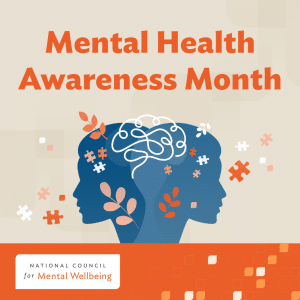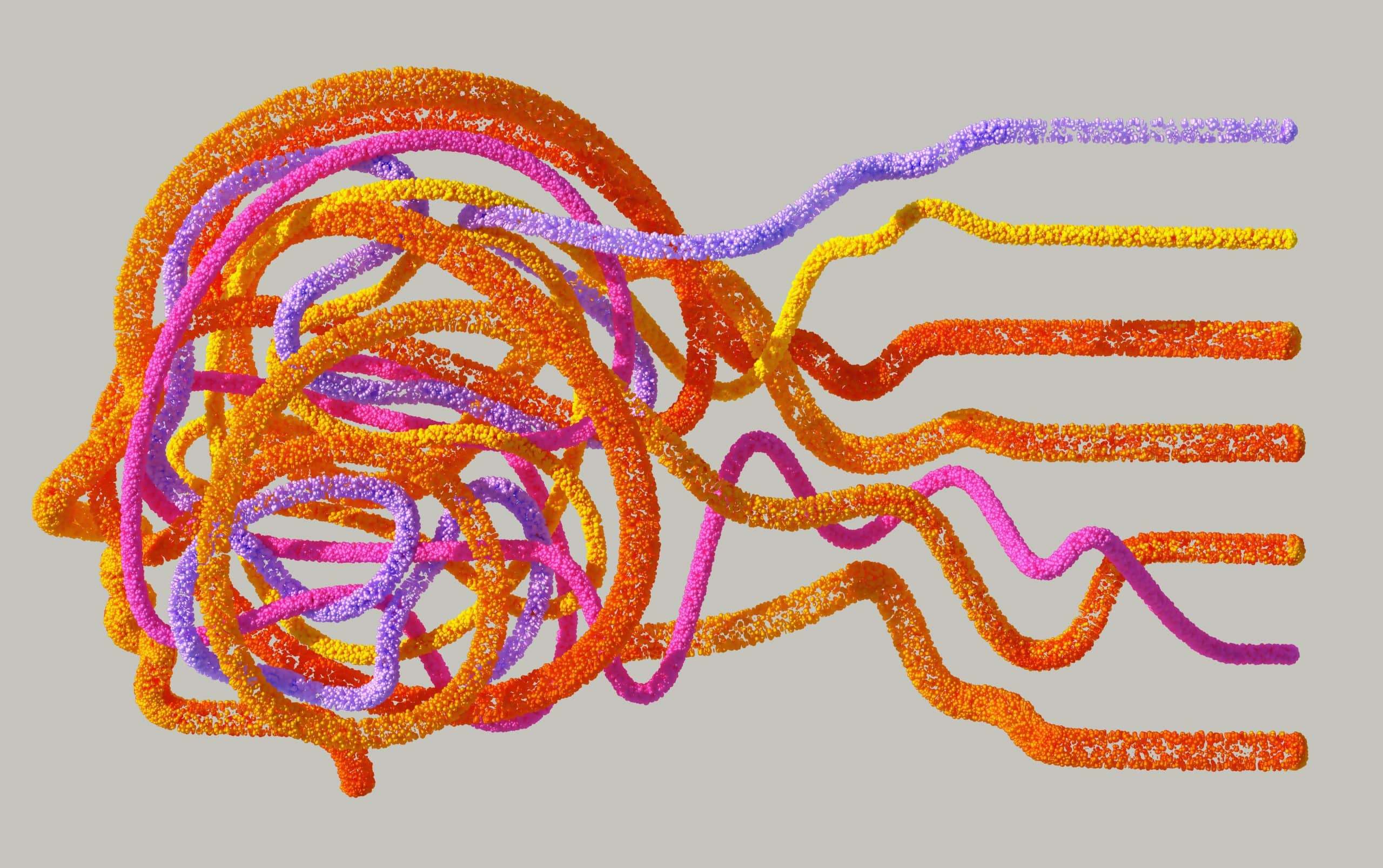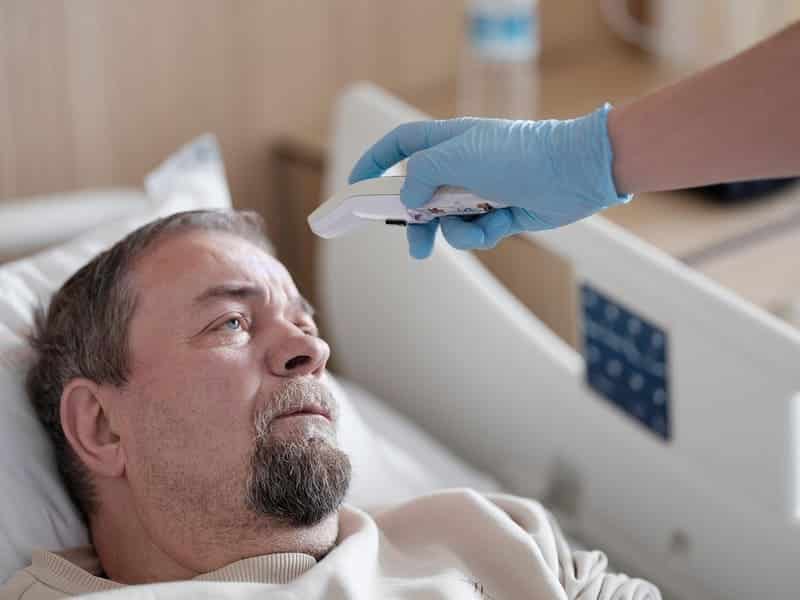As the month of May wraps up, it is important to reflect back on Mental Health Awareness Month and the importance it has in 2025. Mental health is incredibly important for the well-being of all humans, from all walks of life. However, the stigma that is often attached to the symptoms or the struggles people face from mental health leaves a lot of individuals to suffer in silence. It is essential to encourage people to seek out support when they need it and to feel empowered to do so. Mental Health Awareness Month aims to help everyone better understand mental health and take it from the dark into the light.
Mental Health Awareness Month Helps Everyone With Understanding And Empathy

Originally founded in 1949, Mental Health Awareness Month with the goal of educating, spreading awareness, and helping support those struggling with their mental well-being. Oftentimes, mental health affects people silently. People on the outside do not know what is going on in someone’s head, and it can be common to judge people based on their behavior without knowing the underlying cause. Sometimes, even after explaining the situation, people will still judge, or even tell the individual to “suck it up”. That stigma is precisely what makes awareness month so crucial, over 70 years later.
Mental Health Awareness Month educates the world on the prevalence of mental illness. Mental Health First Aid, a page supported by the National Council for Mental Wellbeing, gives some startling numbers.
- 1 in 5 U.S. adults experience mental illness each year.
- 1 in 20 U.S. adults face serious mental illness annually.
- 1 in 6 U.S. teens have a mental health condition, but only half of them get treatment.
- 50% of mental illnesses start by age 14, and 75% by age 24.
- In 2023, 20% of high school students seriously considered suicide.
On top of these numbers, there has been a sharp increase in crisis hotline calls and suicide attempts among LGBTQ+ youth in 2025, due to the current political climate in the country. These numbers just highlight what we already know: mental health is real, and we need to support and encourage people who are struggling, instead of putting them down and ostracizing them. As the National Council for Mental Wellbeing states, “Mental Health Awareness Month helps remind us that mental health care should be just as easy to access as seeing a doctor when we’re physically sick. Everyone deserves support, understanding, and care when they’re struggling with their mental health.”
So, what can we do to help support the Mental Health Awareness Month Initiatives? Here are some suggestions provided by the National Council for Mental Wellbeing:
- Talk about mental health — One of the best ways to raise awareness is to start conversations. Talk with your friends, family or even people online about the importance of mental health. Share your own experiences if you feel comfortable — it helps others know they’re not alone.
- Set an example — When we prioritize our mental wellbeing, we show others how to do the same. You can do something as simple as practicing mindfulness, journaling, taking breaks or talking to a counselor.
- Show support — If someone you know is struggling, offer a listening ear or encourage them to seek help. Sometimes, just being there for someone can make all the difference.
- Learn more — The more you know about mental health, the more you can help others and reduce the stigma that surrounds it. There are plenty of resources out there, like the National Council for Mental Wellbeing’s website, where you can learn about mental health conditions, signs to watch for and ways to get support.
There is also a wonderful Mental Health Awareness Month Toolkit available here from the Substance Abuse and Mental Health Services Administration, which offers many suggestions for how to stay involved. In it, you can find posts to share on your own or your organization’s social media sites, tips for engaging in conversations around mental health, key messages and themes to focus on, and positive messaging. Above all else, though, make sure people know that they are not alone. Mental health is far more prevalent than people realise, and there is always help and support available.
How Do We Keep The Focus Moving Forward?
While Mental Health Awareness Month may be ending, the cause is not. Every single day, people take their own lives as a result of mental illness. Remember the main goals of awareness month as depicted by the National Council for Mental Wellbeing:
- Educating the public about mental health conditions and their impact.
- Reducing stigma by encouraging open conversations and fostering acceptance.
- Highlighting the importance of early intervention and access to treatment.
- Sharing available mental health resources, including support groups and crisis services.
- Building solidarity and reducing isolation for those facing mental health challenges.
- Advocating for improved mental health policies, increased funding, and better access to care.
- Promoting mental wellbeing and self-care practices for overall health.
All of these steps are things people can do in their everyday lives. Make the time to learn about various mental health topics. Build communities that are supportive and make people feel welcome and safe to open up. Talk about treatment options and resources, share them with friends and family, and post them on social media. Reach out to someone who may be suffering in silence. As someone who struggles with my own mental health challenges, I know all too well how hard it can be to ask for help on our own and to feel alone and isolated.
If you are someone who needs help, please know there is support available. If you or someone you know is considering suicide, please reach out to the Suicide and Crisis Lifeline by dialing or texting 988, or going to 988lifeline.org. All conversations are private and confidential. You are not alone.
Let’s all take the time to remember the goals and legacy of Mental Health Awareness Month, the good it spreads, and work to apply it each and every day of the year, and make the world a more empathetic, compassionate, and understanding place for all.










